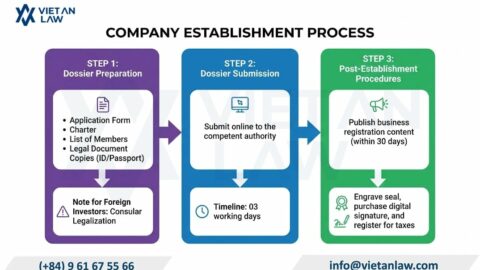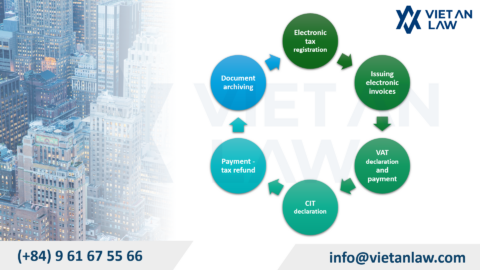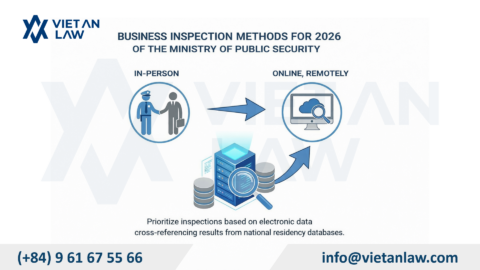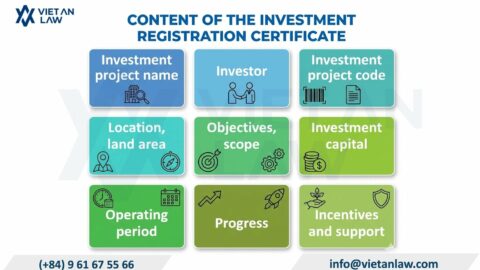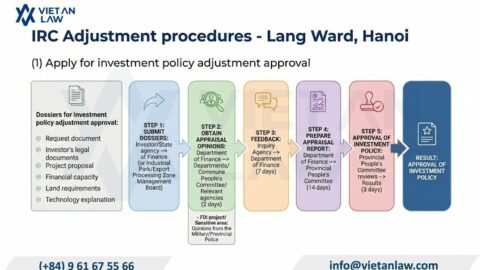Establishing a company in Vietnam comes with a set of obligatory procedures that must be fulfilled to ensure proper legal and operational compliance. Nowadays, when administrative procedures are improved and streamlined through many stages especially with the support of the digital technology era, carrying out establishment procedures for a new business will be more convenient than ever. In reality, many business owners, after holding the Enterprise Registration Certificate, are struggling to know where to start and how to fully implement the current legal regulations for their new business.

Table of contents
With many years of experience in the field of tax consulting for businesses, Viet An Tax Agent would like to suggest the tasks that need to be performed for newly established businesses specifically as follows:
According to the provisions of the Enterprise Law and its guiding documents: Founding members, shareholders, and owners must contribute capital to establish the company within 90 days from the date of issuance of the Enterprise Registration Certificate. Regulations apply to all types of businesses as single-member LLCs, multiple-member LLCs, and joint-stock companies.
Company signs will usually be sized like A4 paper, use eye-catching colors, and must be easily placed to observe and recognizable positions. The company sign must be written in Vietnamese and fully display basic information: name, tax code, address, contact phone number, license number… of the company.
After completing the registration procedure and being granted a Registration Certificate, businesses need to make and hang company signs.
Digital signature is a form of electronic signature that is a tool that businesses use to issue VAT invoices, declare social insurance, submit declarations, tax reports, and pay financial obligations in the field of tax and customs, etc.
Currently, on the market, there are many digital signature providers for convenience during use. Businesses need to choose reputable suppliers in the market to avoid legal risks because, with the current mechanism, electronic signatures play a very important role in businesses, especially in the accounting department.
After registering and receiving a digital signature, businesses can declare taxes electronically. Businesses need to be careful when registering that information, such as phone numbers and contact emails, must be provided accurately for tax authorities to contact and exchange information.
According to current law, newly established enterprises are exempted from license fees in the first year of establishment or production and business activities (from January 1 to December 31) and submit applications. Introduce license fees no later than January 30 of the year following the year of establishment or commencement of production and business activities.
For businesses to have more convenience in financial transactions such as recording capital contributions, purchasing equipment for the business, etc., after establishing a business, they should always open a bank account for their business. The account opening will be carried out directly by the legal representative of the business along with the accounting personnel (if any). Documents and processes need to be prepared to register to open a bank account according to the requirements of each bank and the specific needs of each business. Business documents need to be prepared when registering to open an account:
From May 1, 2021, in the business registration documents (forms requesting registration of various types of companies) according to Circular 01/2021/TT-BKHDT, there is no bank account number information. Therefore, from May 1, 2021, businesses do not have to carry out bank account registration procedures with the Department of Planning and Investment.
If an enterprise conducts business activities after its establishment, it is required to issue invoices.
According to the current new regulations, the registration of electronic invoices has simplified administrative procedures, so now, after contacting the invoice supplier, businesses will make a notice of registration to use electronic invoices. After two (02) working days, if the notification is accepted by the tax authority, the enterprise can issue an invoice.
The specific self-implementation process is as follows:
Note that the tax authority may inspect the business when the business is newly established or has just applied to issue electronic invoices, so the business should prepare documents according to the following contents if: Tax authorities come down to check:
According to Clause 3 and Clause 4, Article 13 of Circular 45/2013/TT-BTC guiding on methods of depreciation of fixed assets:
“3. The enterprises shall decide the method of depreciation, the time of deduction of the fixed assets as prescribed in the Circular and inform the directly managing tax agency prior to implementation.”
Many businesses have forgotten this regulation and defaulted to including assets in calculating business depreciation. Many businesses have been fined for not complying with this regulation.
For newly established businesses, it is necessary to pay attention when choosing an accounting regime that is appropriate to the size of the business and comply with the obligation to declare and pay taxes in full by current law.
In case there is a change in capital during the year, the enterprise shall submit the license fee declaration no later than January 30 of the year following the year in which the change occurred.
With profound experience in the field of tax consulting and business support, customers who need to use post-establishment services for newly established businesses please contact us at Hotline: (+84) 988 856 708 – Viet An tax agents are always ready to listen and support and advise businesses quickly, promptly and effectively!
